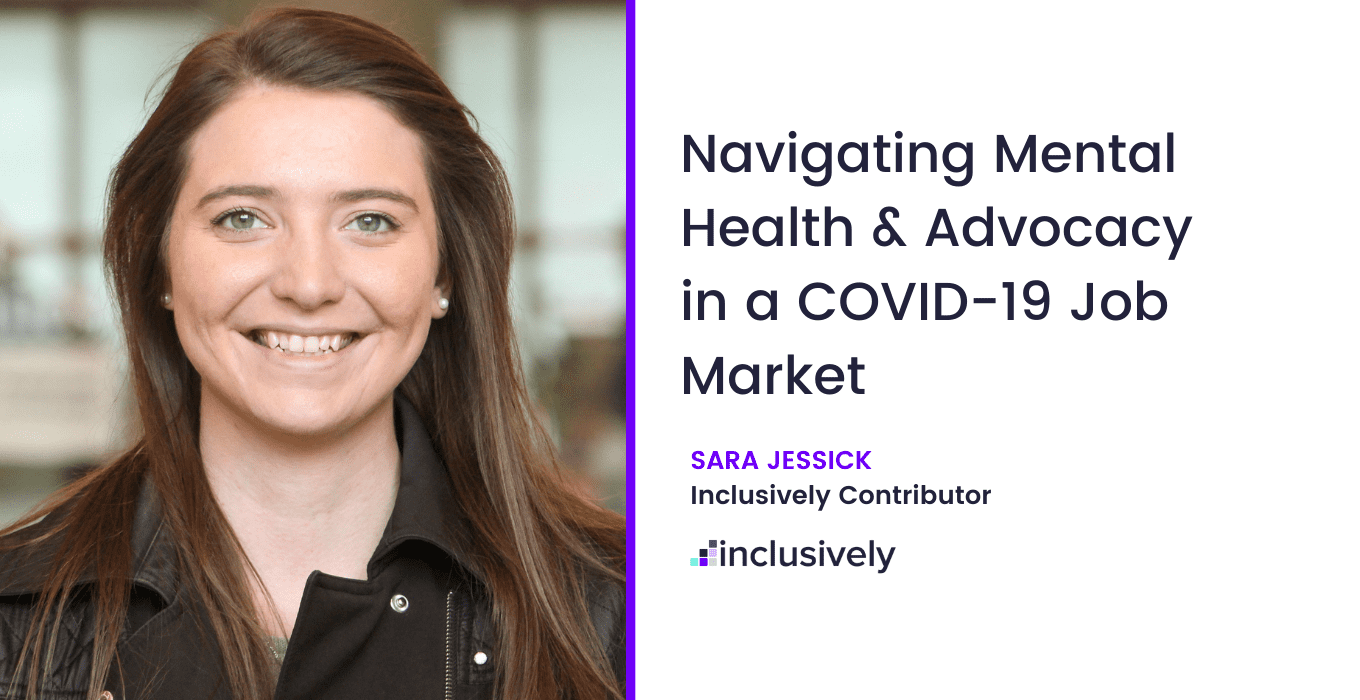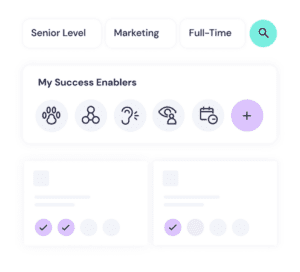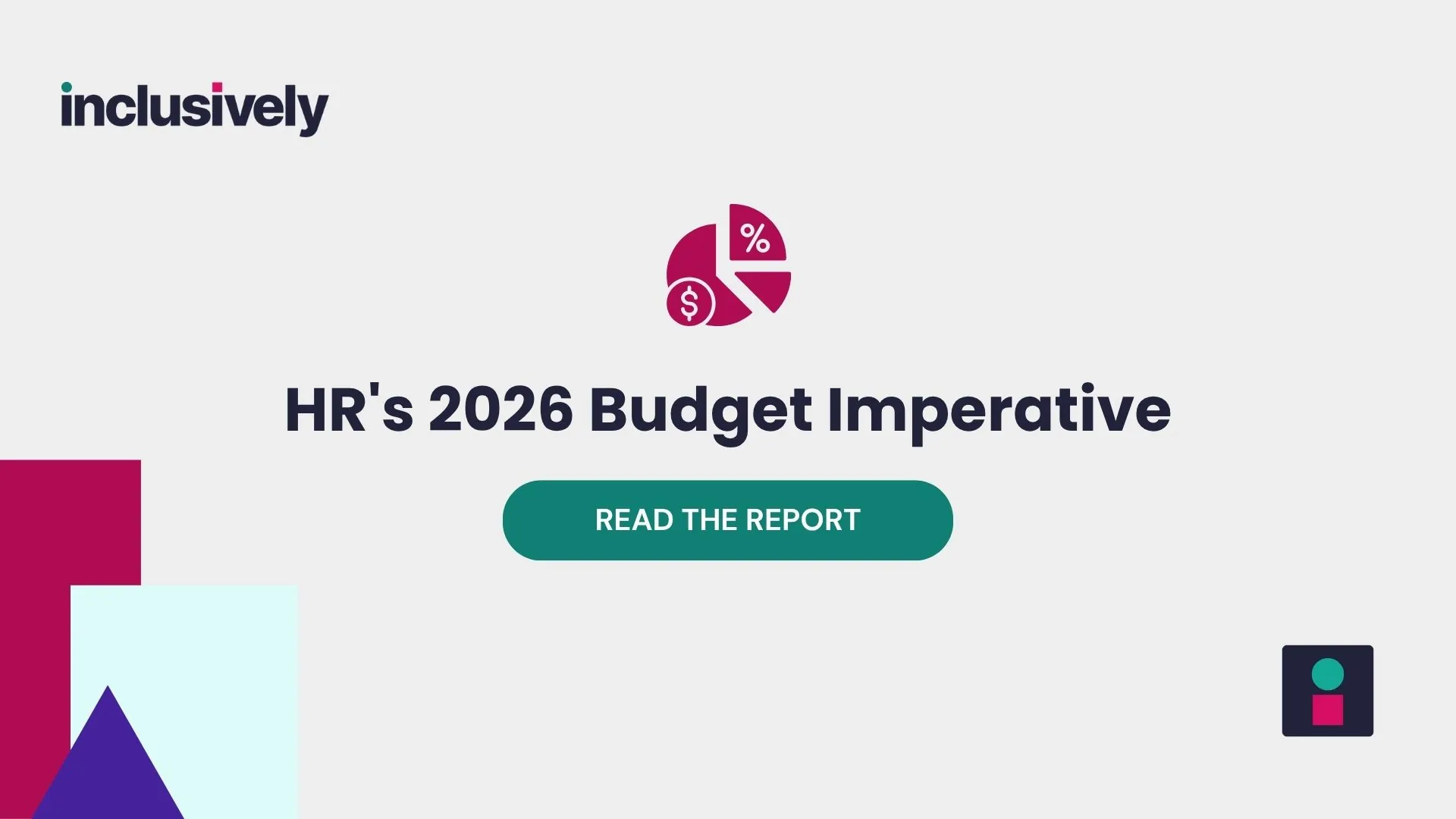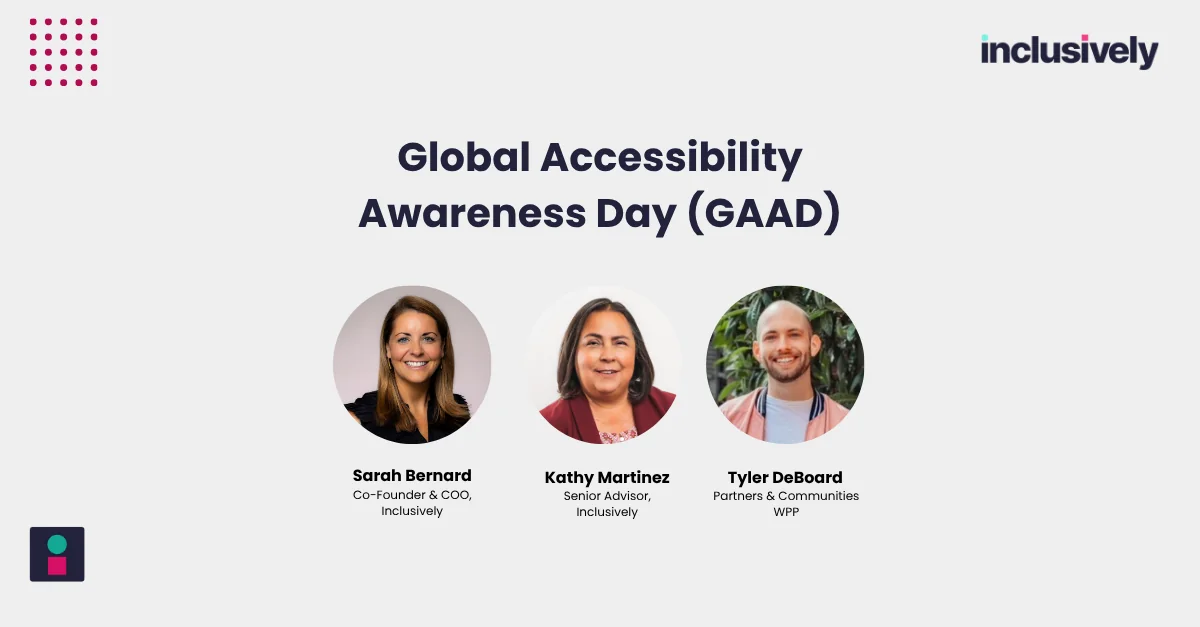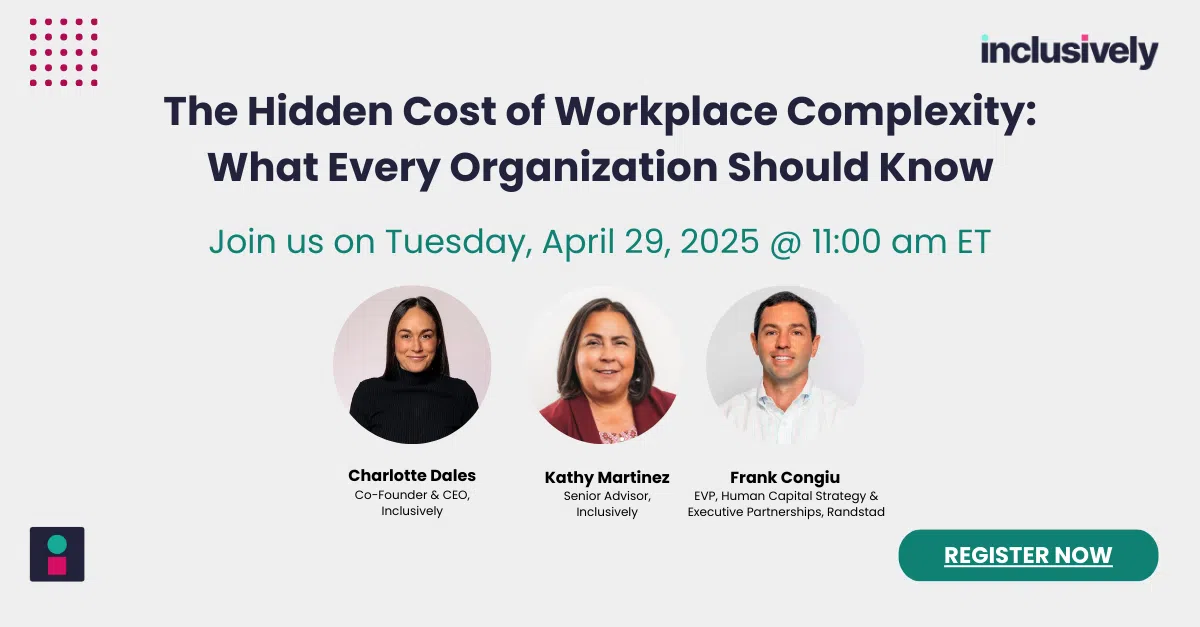Sara shares her experience of job searching as a proud member of the d/Deaf and Hard-of-Hearing Community
Picture this: The Las Vegas strip, in 111-degree fahrenheit, twinkling and bustling with thousands of neon lights, people, sounds, and smells. Tourist helicopters roar overhead once every 10 minutes, street-performers vibrate as they drum and sing, and cars thump like pronghorns in a herd. As I type, this is my current world, from a cool, 68-degree, air-conditioned hotel room. My family and I are seeing each other for the first time in 2 years, on our first family vacation.
As someone with profound bilateral hearing loss, in Vegas, I’ve momentarily tapped myself into a slightly, emotionally suppressive state, which doesn’t usually happen when I encounter sound. But over time and experience, with being steeped in more sensory-overloaded environments than I’m usually accustomed to, I’ve noticed that that’s usually my default in these situations. This is to preserve and ration energy, and to protect my mental and physical well-being, as they often go hand-in-hand.
One month prior to this trip, I moved myself into a new, beautiful apartment. And a little under one week prior to the move, I was laid-off a second time due to our current, global pandemic.
Now that I’m back to job-searching again, I can’t help but reflect on last year, around this same time: I was unemployed, from my first pandemic-related layoff, and unsure about what my future would look like. Although I tried to keep my mental-health in-check (and it often worked), there were moments when I found myself retreating to the organized-chaos of mental-gymnastics and snapping myself out of slivers of toxic positivity.
This was around the same time that Inclusively launched, eventually, gradually soothing my job-search frustrations like a bottle of aloe-vera on a sunburn.
As you can probably guess, the aforementioned “energy-rationing” is just one example of the resiliency that Disabled people tap into, daily. This is especially true during a job-search. And sometimes… even if/when we’re employed. The barriers that Disabled people face, during the employment cycle, are often too many. Even with the ADA and champions of mental health in our world today (Think, Judy Heumann, Becca Meyers, Simone Biles), there is still much to be comprehensively addressed.
With my most recent job, which I acquired through Inclusively, I had the privilege of working with a global team that was inclusive, diverse, and that was making strides to be as accessible as possible. The impact this had on my career and personal outlook influenced me to continue the path of helping to make the world a better place for all.
Long-story, short, the past couple of years have given me some insight into mental-health practices, tips, and tricks, both during the job-search/interview process and after.
During the process, I can recommend three things: Utilize organizational tools to keep your applications and materials in-check, take advantage of Inclusively’s success enablers for both your interview and job-preferences, and rest. For organization, I personally use Microsoft’s free Office.com resources. Excel sheets help me organize my applications and their details, making cover letters a snap to write and follow-ups easy to keep track of, while Word helps me practice my interview questions and take notes during interviews and networking. Inclusively’s ‘Success Enablers’ for both your interview and job-preferences will save you the back-and-forth of figuring out the necessary accommodations for both, and it’ll protect you from feeling obligated to disclosing your specific disability(ies). And rest is the ultimate key. Without blocking out time to just be, sip your coffee, or sleep (heck, create an email signature that includes your “office-hours”), the job-search process can tend to get strained and mental-health drops, impacting your motivation and overall health.
Rest is also a tried-and-true way of embracing your mental stressors. Why would you want to embrace mental stressors? Because we’re not robots (Unless you like being called one: “Bionic”, anyone?). You are a human being, and you deserve to have the best and most fair chances possible of achieving your goals. The longer you put-off addressing your stressors, I guarantee, the harder it’ll be to grow.
After the interview process, and once you’ve become a member of an amazing team, this is when both you and your employer/co-workers work together on the workplace, or remote, accommodations. From experience, I used to be too scared to say anything. Then, I graduated to saying something, but didn’t push hard enough. Now, I think you can guess, I’m definitely more forthright about requesting what I need in order to boost my employer’s output, because I’ve heard and felt the impact of what happens when I speak up, and it’s something I personally want to keep doing.
Employers and co-workers, when it comes to working with Disabled people or connecting with Disabled candidates, normalize asking questions related to personalized preferences and advocacy. For example, ask them what their preferred communication methods are, rather than saying something like, “My phone number is below.” If you’re using video-teleconferencing, and the candidate is d/Deaf like me, ensure there are no loud noises in the background, lighting is adequate, and they’re able to read your lips or captioning, if necessary. I once was on a video call with a large group, and one co-worker had what sounded like a vacuum in the background, so even with captions, I couldn’t understand what was being communicated. Plus, chances are, if you, as the employer, initiate the conversation of accommodations and disability inclusion, your candidate loyalty is bound to go up, productivity will go up, and everyone, regardless of whether they’re disabled or not, will benefit.
All-in-all, over years of being both a disabled job-candidate and employee, the job market is a bit like gambling. Ensure you have the best possible chances to both benefit and contribute. And if you don’t get the job, or candidate, the first time around, bet on the next one until you both win the jackpot.
If you would like to become a part of Inclusively’s journey towards more accessible, inclusive, and diverse employment, sign up to join and create your free profile at Inclusively.com.
To continue this conversation, I’ve posted this mental health blog in Inclusively’s new Community Portal, created for job seekers, employers, and partners to discuss disability employment topics, share experiences–and grow personally and professionally.
Overview of a candidate’s job search indicators, including Senior Level, Marketing, Full-Time, My Success Enablers with a row of icons
How Inclusively Works
Inclusively’s accessible employment platform and job matching technology goes beyond traditional search criteria and allows candidates to connect with opportunities that match their experience, skills, and workplace accommodations – called Success Enablers. Some examples include screen readers, noise-canceling headphones, an emotional support animal, accessible parking and entrances, braille signage, and dozens more.
Sara shares her experience of job searching as a proud member of the d/Deaf and Hard-of-Hearing Community
By: Sara Jessick
Picture this: The Las Vegas strip, in 111-degree fahrenheit, twinkling and bustling with thousands of neon lights, people, sounds, and smells. Tourist helicopters roar overhead once every 10 minutes, street-performers vibrate as they drum and sing, and cars thump like pronghorns in a herd. As I type, this is my current world, from a cool, 68-degree, air-conditioned hotel room. My family and I are seeing each other for the first time in 2 years, on our first family vacation.
As someone with profound bilateral hearing loss, in Vegas, I’ve momentarily tapped myself into a slightly, emotionally suppressive state, which doesn’t usually happen when I encounter sound. But over time and experience, with being steeped in more sensory-overloaded environments than I’m usually accustomed to, I’ve noticed that that’s usually my default in these situations. This is to preserve and ration energy, and to protect my mental and physical well-being, as they often go hand-in-hand.
One month prior to this trip, I moved myself into a new, beautiful apartment. And a little under one week prior to the move, I was laid-off a second time due to our current, global pandemic.
Now that I’m back to job-searching again, I can’t help but reflect on last year, around this same time: I was unemployed, from my first pandemic-related layoff, and unsure about what my future would look like. Although I tried to keep my mental-health in-check (and it often worked), there were moments when I found myself retreating to the organized-chaos of mental-gymnastics and snapping myself out of slivers of toxic positivity.
This was around the same time that Inclusively launched, eventually, gradually soothing my job-search frustrations like a bottle of aloe-vera on a sunburn.
As you can probably guess, the aforementioned “energy-rationing” is just one example of the resiliency that Disabled people tap into, daily. This is especially true during a job-search. And sometimes… even if/when we’re employed. The barriers that Disabled people face, during the employment cycle, are often too many. Even with the ADA and champions of mental health in our world today (Think, Judy Heumann, Becca Meyers, Simone Biles), there is still much to be comprehensively addressed.
With my most recent job, which I acquired through Inclusively, I had the privilege of working with a global team that was inclusive, diverse, and that was making strides to be as accessible as possible. The impact this had on my career and personal outlook influenced me to continue the path of helping to make the world a better place for all.
Long-story, short, the past couple of years have given me some insight into mental-health practices, tips, and tricks, both during the job-search/interview process and after.
During the process, I can recommend three things: Utilize organizational tools to keep your applications and materials in-check, take advantage of Inclusively’s success enablers for both your interview and job-preferences, and rest. For organization, I personally use Microsoft’s free Office.com resources. Excel sheets help me organize my applications and their details, making cover letters a snap to write and follow-ups easy to keep track of, while Word helps me practice my interview questions and take notes during interviews and networking. Inclusively’s ‘Success Enablers’ for both your interview and job-preferences will save you the back-and-forth of figuring out the necessary accommodations for both, and it’ll protect you from feeling obligated to disclosing your specific disability(ies). And rest is the ultimate key. Without blocking out time to just be, sip your coffee, or sleep (heck, create an email signature that includes your “office-hours”), the job-search process can tend to get strained and mental-health drops, impacting your motivation and overall health.
Rest is also a tried-and-true way of embracing your mental stressors. Why would you want to embrace mental stressors? Because we’re not robots (Unless you like being called one: “Bionic”, anyone?). You are a human being, and you deserve to have the best and most fair chances possible of achieving your goals. The longer you put-off addressing your stressors, I guarantee, the harder it’ll be to grow.
After the interview process, and once you’ve become a member of an amazing team, this is when both you and your employer/co-workers work together on the workplace, or remote, accommodations. From experience, I used to be too scared to say anything. Then, I graduated to saying something, but didn’t push hard enough. Now, I think you can guess, I’m definitely more forthright about requesting what I need in order to boost my employer’s output, because I’ve heard and felt the impact of what happens when I speak up, and it’s something I personally want to keep doing.
Employers and co-workers, when it comes to working with Disabled people or connecting with Disabled candidates, normalize asking questions related to personalized preferences and advocacy. For example, ask them what their preferred communication methods are, rather than saying something like, “My phone number is below.” If you’re using video-teleconferencing, and the candidate is d/Deaf like me, ensure there are no loud noises in the background, lighting is adequate, and they’re able to read your lips or captioning, if necessary. I once was on a video call with a large group, and one co-worker had what sounded like a vacuum in the background, so even with captions, I couldn’t understand what was being communicated. Plus, chances are, if you, as the employer, initiate the conversation of accommodations and disability inclusion, your candidate loyalty is bound to go up, productivity will go up, and everyone, regardless of whether they’re disabled or not, will benefit.
All-in-all, over years of being both a disabled job-candidate and employee, the job market is a bit like gambling. Ensure you have the best possible chances to both benefit and contribute. And if you don’t get the job, or candidate, the first time around, bet on the next one until you both win the jackpot.
If you would like to become a part of Inclusively’s journey towards more accessible, inclusive, and diverse employment, sign up to join and create your free profile at Inclusively.com.
text_block
To continue this conversation, I’ve posted this mental health blog in Inclusively’s new Community Portal, created for job seekers, employers, and partners to discuss disability employment topics, share experiences–and grow personally and professionally.
image_block
https://cdn.buttercms.com/IG8KPxCdRyC4lVQW1nj8
Sara Jessick, a white, young woman with long brown hair, blue eyes, and wearing a moto-style jacket, smiling at the camera.
About Sara
Sara Jessick is a Sr. Graphic & Digital Designer / Jr. Art Director with over 7 years of professional design experience and over 1 1/2 years of directive experience. She’s also a Photographer and has experience shooting client photography, and directing and assisting in photoshoots for social, brand, and product development. As a proud member of the d/Deaf and Hard-of-Hearing Community since birth, Sara is a disability advocate, bringing a sense of diversity to any job and project with a high-demand inclusivity and accessibility perspective. Sara has a BFA from the University of WI-Eau Claire and is currently unemployed. She looks forward to networking and connecting, and hopefully finding a new opportunity soon.
Overview of a candidate’s job search indicators, including Senior Level, Marketing, Full-Time, My Success Enablers with a row of icons
How Inclusively Works
Inclusively’s accessible employment platform and job matching technology goes beyond traditional search criteria and allows candidates to connect with opportunities that match their experience, skills, and workplace accommodations – called Success Enablers. Some examples include screen readers, noise-canceling headphones, an emotional support animal, accessible parking and entrances, braille signage, and dozens more.
